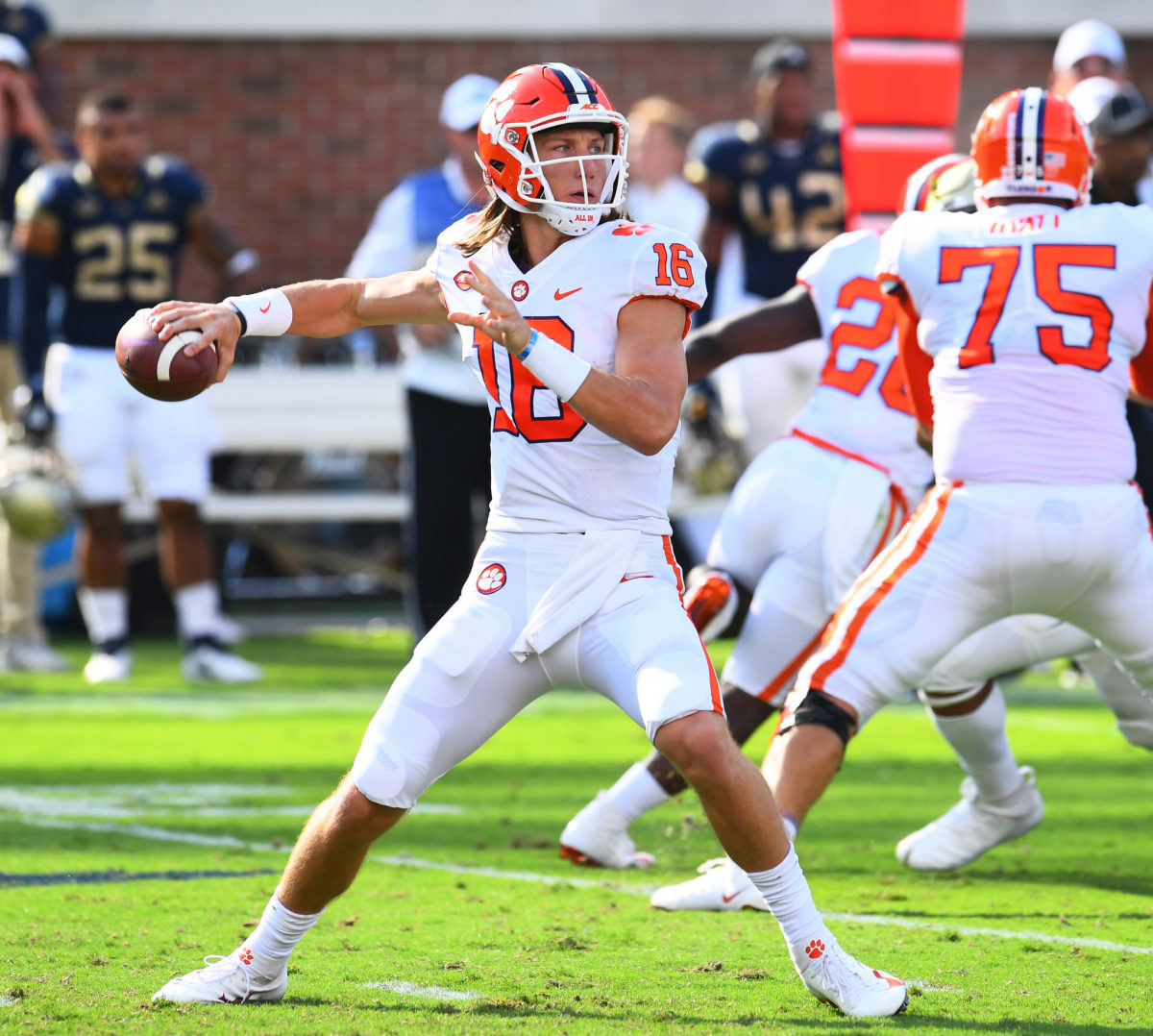Clemson Player Ejection Incident

Clemson player ejected – During a heated ACC football game between Clemson and Wake Forest, Clemson wide receiver Justyn Ross was ejected for targeting in the third quarter. The incident occurred when Ross attempted to make a tackle on Wake Forest quarterback Sam Hartman. Ross’s helmet made contact with Hartman’s head, resulting in a targeting penalty and his subsequent ejection from the game.
As the Clemson player was ejected from the field, the crowd erupted in a chorus of disapproval. The tension in the stadium was palpable, a storm of emotions swirling through the air. Yet, amidst the chaos, a beacon of laughter and light emerged in the form of George Lopez’s antics on the Eagle Mountain stage.
His jokes provided a momentary respite, a reminder that even in the face of adversity, the human spirit has the power to find joy.
Official Statement
The ACC released a statement following the incident, stating that Ross was ejected for “targeting a defenseless player.” The statement also noted that Ross would be required to sit out the first half of Clemson’s next game as a result of the ejection.
Reaction from Ross, Clemson player ejected
After the game, Ross expressed remorse for his actions, saying that he “didn’t intend to hurt” Hartman. He also stated that he would “learn from his mistake” and “come back stronger.”
Impact on the Game
Ross’s ejection had a significant impact on the game. Clemson was forced to play without one of its top receivers for the remainder of the contest. Wake Forest took advantage of Ross’s absence, scoring two touchdowns in the fourth quarter to come from behind and win the game.
Impact on the Game and Season
The ejection of the Clemson player had a significant impact on the game’s outcome and the team’s season. The immediate impact was that the team was forced to play with one less player, which put them at a disadvantage. This was especially evident in the second half, when the team struggled to keep up with the opposing team’s offense. The ejection also had a negative impact on the team’s morale, as it led to a sense of frustration and disappointment among the players.
Potential Long-Term Consequences
The ejection could also have long-term consequences for the player and the team. The player may face a suspension or other disciplinary action, which could affect his ability to play in future games. The team may also suffer from the loss of a key player, which could impact their performance and their chances of success in the season.
NCAA Rules and Regulations: Clemson Player Ejected

The National Collegiate Athletic Association (NCAA) enforces strict rules and regulations governing the conduct of student-athletes on and off the field. These rules aim to maintain sportsmanship, protect the integrity of competition, and uphold the values of education and fair play within collegiate athletics.
The NCAA’s Division I Football Rulebook Artikels specific guidelines for player conduct during games. These rules prohibit unsportsmanlike behavior, such as excessive celebration, taunting, or fighting. Additionally, the NCAA has a zero-tolerance policy for targeting, a dangerous play that involves hitting an opponent above the shoulders or making forcible contact to the head or neck area.
Enforcement and Adjudication
When a player violates NCAA rules, officials on the field can issue penalties, including ejection from the game. The NCAA also has a comprehensive review and adjudication process for such incidents. Conference officials or the NCAA itself may conduct investigations, gather evidence, and interview witnesses to determine the severity of the violation and impose appropriate disciplinary measures.
Depending on the nature of the violation, disciplinary actions may range from fines and suspensions to ineligibility for future games or even expulsion from the team. Student-athletes have the right to appeal disciplinary decisions through established NCAA procedures.
As the dust settles on the Clemson player’s ejection, one can’t help but draw parallels to the tumultuous journey of Delonte West, whose relationship with Mark Cuban took a dramatic turn. Just as the ejected player’s actions on the field overshadowed his team’s performance, West’s personal struggles eclipsed his once-promising basketball career.
Yet, in both cases, it’s the resilience and the search for redemption that ultimately define their stories.
Amidst the chaos of the game, a Clemson player was abruptly ejected, leaving fans in a frenzy. The incident sparked a flurry of questions, sending ripples of speculation through the stadium. Like a whisper carried by the wind, a question arose from the crowd: “How did Jerry West die?” The answer, a somber tale, can be found in the depths of the internet, where the legacy of the NBA legend lives on.
Yet, as the game resumed, the focus shifted back to the field, where the Clemson player’s ejection cast a long shadow over the remaining minutes.
In the annals of college football, the tale of the Clemson player ejected for unsportsmanlike conduct serves as a cautionary tale. As the game reached its boiling point, tensions flared and the player’s actions crossed the line. His dismissal from the field sent shockwaves through the stadium, leaving a lasting mark on the game and the player’s career.
For more insights into this incident, visit here.
In the heat of the game, a Clemson player’s rash act earned him an ejection. Yet, amidst the uproar, the memory of Gail Goodrich, a basketball legend known for his grace and composure gail goodrich , came to mind. Goodrich’s ability to control his emotions on the court, even in the face of adversity, serves as a reminder that true sportsmanship transcends mere athleticism.
